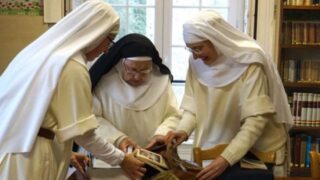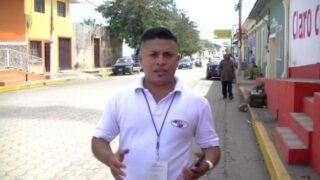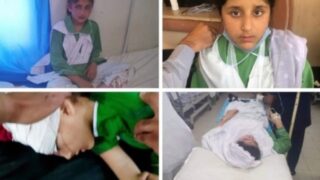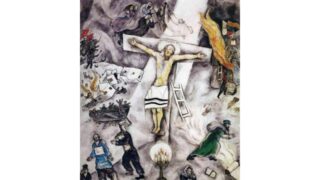The Hong Kong Catholic Church’s past, present, and future—and decisions to be taken by the Vatican—weigh heavily on the fate of the protest.
by Massimo Introvigne


The Hong Kong protests are continuing. Some believe they may become the new Tiananmen. Human rights activist speculate on how the U.S., and President Donald Trump’s, attitude may determine the fate of the protest, or even fuel or create opposition to President Xi Jinping within the CCP itself.
Some in Hong Kong, however, believe that the choices of a third world leader, in addition to Trump and Xi Jinping, may weigh heavily on the future of Hong Kong. This leader is Pope Francis. Roman Catholics in Hong Kong amount only to 5% of the population, but they carry a disproportionate power in politics, culture, and the media. Hong Kong’s Chief Executive, Carrie Lam, whose pro-CCP positions sparked the protest, is herself an active Catholic, has been educated in Catholic schools, and it is no secret that she regularly consults with Catholic Bishops on important political matters.
Hong Kong is also a traditional bridge between the Vatican and China. According to scholars of the Vatican-China relations, Hong Kong is where, until Pope Francis took office in 2013, the strongest opposition to any Vatican agreement with the CCP encouraging Catholic priests and Bishops to join the government-controlled Chinese Patriotic Catholic Association (CPCA) was organized and successfully managed, with the influence of anti-CCP Cardinal Joseph Zen (born in 1932 and bishop of Hong Kong between 2002 and 2009) extending to Rome. Zen, according to the same scholars, had built a formidable team with fellow member of the Salesian order, Archbishop Savio Hon Tai-fai (born in Hong Kong in 1950), the most influential Chinese prelate in the Roman Curia, where he served since 2010 as secretary of the Congregation for the Evangelization of Peoples, i.e. the Vatican department directly responsible for China. Both Zen and Ho had the ear of Pope Benedict XVI, and effectively torpedoed any possible agreement under which Chinese Catholic priests and Bishops would or should join the CPCA. They were supported by Father, later Archbishop, Ettore Balestrero, a top political officer in the Vatican’s Secretariat of State, and a staunch opponent of the CCP.
In 2013, Pope Benedict XVI resigned, and Pope Francis was elected. He indicated an agreement with the Chinese government as one of his diplomatic priorities, at the price of asking certain “sacrifices” from those anti-CCP Catholics who had suffered for their (until then) Vatican-sanctioned refusal to join the CPCA.
People matters, and in order to make an agreement with the CCP some people should go. Balestrero was so much a man of Benedict XVI that he was sent as Vatican ambassador (nuncio) to Colombia just before the German Pope resigned, according to Vatican sources to protect him for what may come under a new and differently inclined Pontiff. The same sources claim that the CCP expressed its pleasure to the Vatican that Balestrero was leaving Rome, inducing some to see the long arm of China behind an obscure scandal involving the Archbishop’s brother that led him to be further demoted from nuncio to Colombia (an important country for the Catholic Church) to nuncio to Congo in 2018.
Zen ended his term in 2009 and was replaced by Bishop, later Cardinal, John Tong Hon (born in 1939). He is certainly less belligerent against the CCP than Zen, and (unlike his predecessor) not inclined to criticize the Vatican on any issue. Yet, he has always been extremely cautious on matters concerning Mainland China. That the Vatican was moving very cautiously in Hong Kong was confirmed by the appointment, in 2014, of two younger auxiliary Bishops, one regarded as anti-CCP, the Franciscan Joseph Ha Chi-shing (born 1959), and one as more favorable to an agreement with China, Stephen Lee Bun-Sang (born 1956). Lee is a member of Opus Dei and is regarded as theologically conservative, showing that being liberal or conservative is not necessarily connected with being pro or against the Vatican-China deal.
Things, however, changed between 2016 and 2017, when certain decisions about the Vatican-China deal of 2018 had probably already been taken in Rome. Archbishop Savio Hon Tai-fai was removed from the Vatican Curia in 2016 (another move for which, according to inside sources, the CCP thanked the Holy See) and sent to take care of the troubled Catholic Church in Guam, whose Bishop had resigned after having been involved in a sex abuse scandal. He was then sent to Greece (not exactly a key country for the Vatican diplomacy) as a nuncio.
Also in 2016, Hong Kong’s auxiliary Bishop Lee Bun-Sang was promoted to Bishop of Macau, reportedly with the blessing of the CCP.
In 2017, Cardinal Tong’s term ended. He was replaced by Bishop Michael Yeung (1945–2019). A close associate of Carrie Lam, it is difficult to dispel the impression that he was appointed to promote the Vatican-China deal to be signed in 2018. But he went too far and ended up embarrassing the Holy See, by first giving the impression that he approved the CCP’s systematic destruction of crosses of Protestant churches in China, and then claiming that his position on the matter was that the CCP’s regulations should be respected. Proving, once again, that one can be pro-CCP and at the same time theologically conservative, Yeung also raised eyebrows in Rome for his militant attitude against LGBT rights and for comparing homosexuality to drug addiction, something perceived as at odds with Pope Francis’ more tolerant attitude on the matter.
On January 3, 2019, Yeung, who was suffering of cirrhosis of the liver, died before his term as Bishop of Hong Kong expired. All eyes turned on Rome. There were two natural candidates for the succession, and the choice would reveal how the Vatican was assessing the deal it had signed with the CCP a few months before. Clearly, the CCP would have been happier with the choice of the Bishop of Macau, Lee Bun-Sang, as the new Bishop of Hong Kong—and much less happy if the Pope would pick up for the position auxiliary Bishop Ha Chi-shing, regarded as anti-CCP. Pope Francis surprised everybody by appointing neither Lee nor Ha, but calling out of retirement middle-of-the-road Cardinal Tong, asking him to resume his old duties.
It was thus Tong who had to lead the Hong Kong Catholic Church through the storm of the protests. He advised Catholic chief executive Carrie Lam against signing the controversial extradition agreement with China, and together with other religious leaders offered a moderate support to the protesters. At the same time, he also let Hong Kong Catholics know that he did not support Cardinal Zen’s vocal opposition to the Vatican-China deal.But he did not prevent his auxiliary Bishop Ha Chi-shing from actively participating in the protests, and even being regarded as one of its moral leaders.
The Vatican has been silent on the Hong Kong protests. But clearly it should speak sooner or later, not with words but through a momentous decision. Cardinal Tong is 80. He made it clear he was accepting to return to his old position provisionally. Soon the Pope should appoint a new Bishop of Hong Kong. Local Catholics massively support the protests and make no secret that they expect Bishop Ha to be appointed. They would regard an appointment of Macau’s Bishop Lee as a statement against the protests and democracy. Some, however, told Bitter Winter that rumors circulate that the Vatican-China deal of 2018, whose text remains secret, may include a clause implying that the choice of the Bishop should be agreed upon between the Holy See and the CCP in Hong Kong as well. Time will tell, but clearly the appointment of Bishop Ha would be a signal to the CCP and the world that the Vatican stand for democracy in Hong Kong, and the 2018 agreement does not mean that Rome is prepared to ignore human rights issues. The appointment of Bishop Lee would be a different signal, although some caution that the Opus Dei prelate of Macau is a complex personality and it would be a mistake to categorize him as an unconditional supporter of the CCP, just as Bishop Ha has never supported Cardinal Zen’s open criticism of the Vatican. Unless Pope Francis will surprise everybody again by “inventing” a third candidate—on which no hints or rumors circulate so far.









